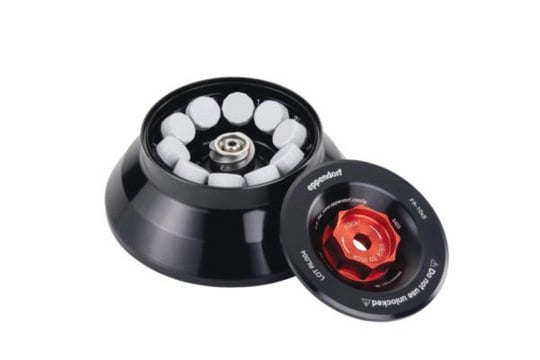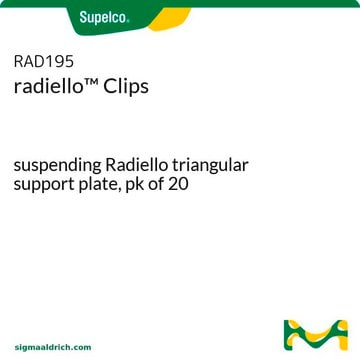Recommended Products
manufacturer/tradename
Radiello
technique(s)
passive air sampling: suitable
application(s)
air monitoring
environmental
industrial hygiene
General description
This kit was developed for sampling of nitrous oxide, isofluorane, ethrane, halothane, and sevorane in surgical theaters. Parts for one complete sampler are packed separately in one sealed and sterile bag. Pack of 10 sterile bags.
Each sterile bag contains:
Each sterile bag contains:
- 1 permeative body
- 1 support plate
- 1 vertical adapter
- 1 adsorbing cartridge
Legal Information
radiello is a trademark of Institi Clinici Scientifici Maugeri
Choose from one of the most recent versions:
Certificates of Analysis (COA)
Lot/Batch Number
Sorry, we don't have COAs for this product available online at this time.
If you need assistance, please contact Customer Support.
Already Own This Product?
Find documentation for the products that you have recently purchased in the Document Library.
Customers Also Viewed
Passive Sampling of Atmospheric Organic Contaminants
Esteve-Turrillas, F.A., et al.
Comprehensive Sampling and Sample Preperation, 1, 201-222 (2012)
Volatile organic compounds in air
Methods for the Determination of Hazardous Substances, 1-17 (1997)
Benoît Oury et al.
Journal of occupational and environmental hygiene, 3(10), 547-557 (2006-08-16)
Diffusive sampling is particularly suited to determine time-weighted average volatile organic compound (VOC) concentration in occupational hygiene and environmental air monitoring. The purpose of this study was to measure the sampling rate variation of four different samplers in a special
Armelle Vallat et al.
Phytochemistry, 66(13), 1540-1550 (2005-06-14)
Headspace volatiles from apple-bearing twigs were collected in the field with a Radiello sampler during three different diurnal periods over the complete fruit growing season. Analyses by thermal desorption-GC-MS identified a total of 62 compounds in changing quantities, including the
J Dekeirsschieter et al.
Forensic science international, 189(1-3), 46-53 (2009-05-09)
Forensic entomology uses pig carcasses to surrogate human decomposition and to investigate the entomofaunal colonization. Insects communicate with their environment through the use of chemical mediators, which in the case of necrophagous insects, may consist in the cadaveric volatile organic
Our team of scientists has experience in all areas of research including Life Science, Material Science, Chemical Synthesis, Chromatography, Analytical and many others.
Contact Technical Service










